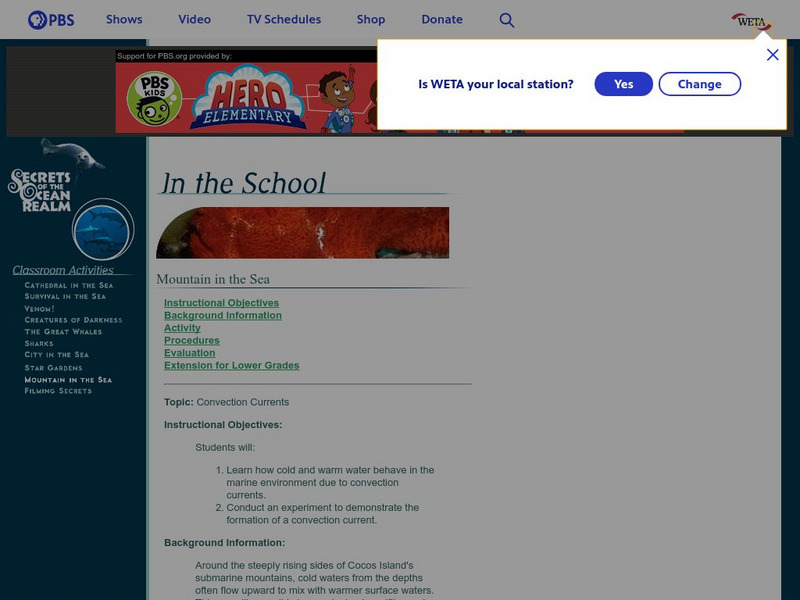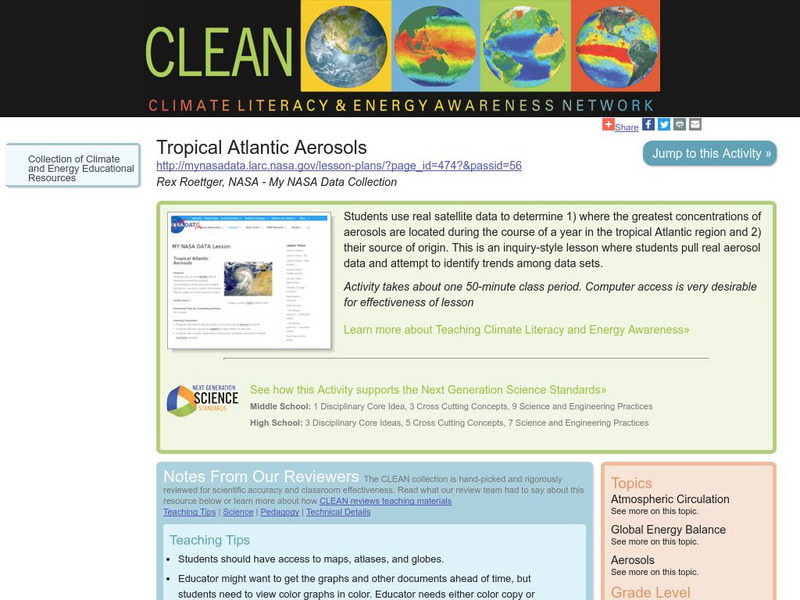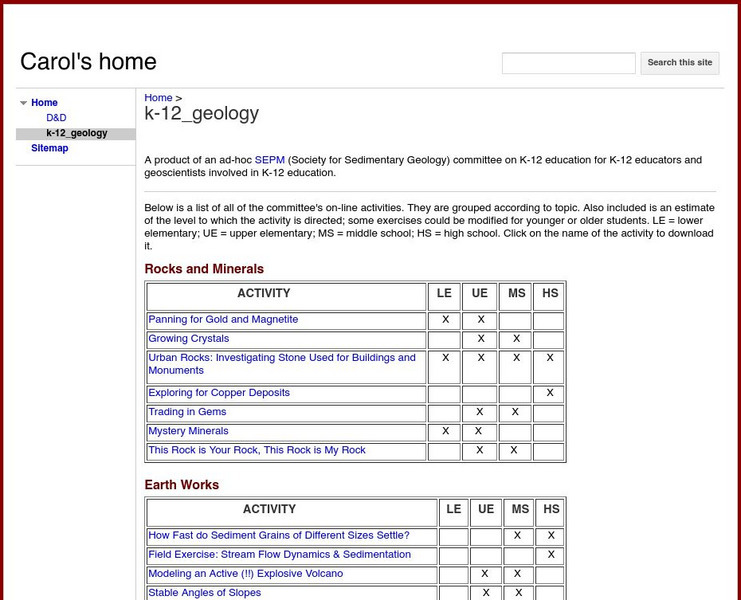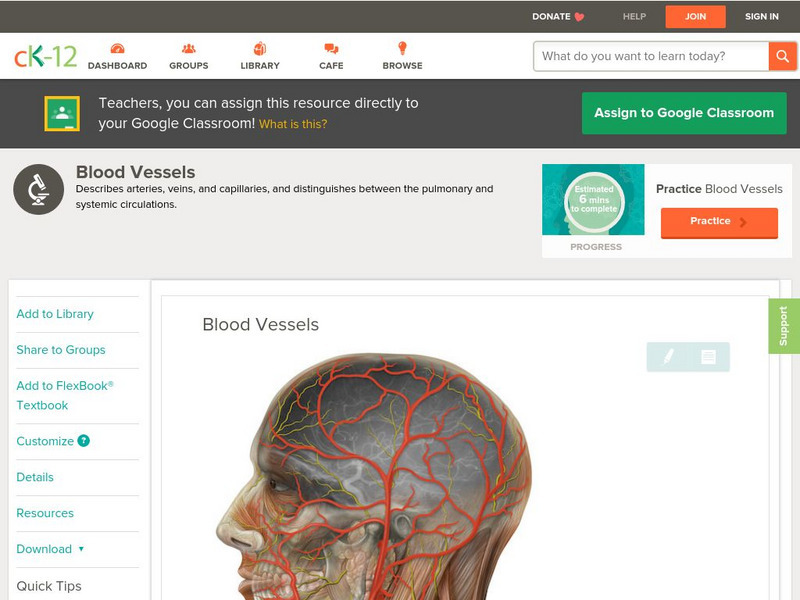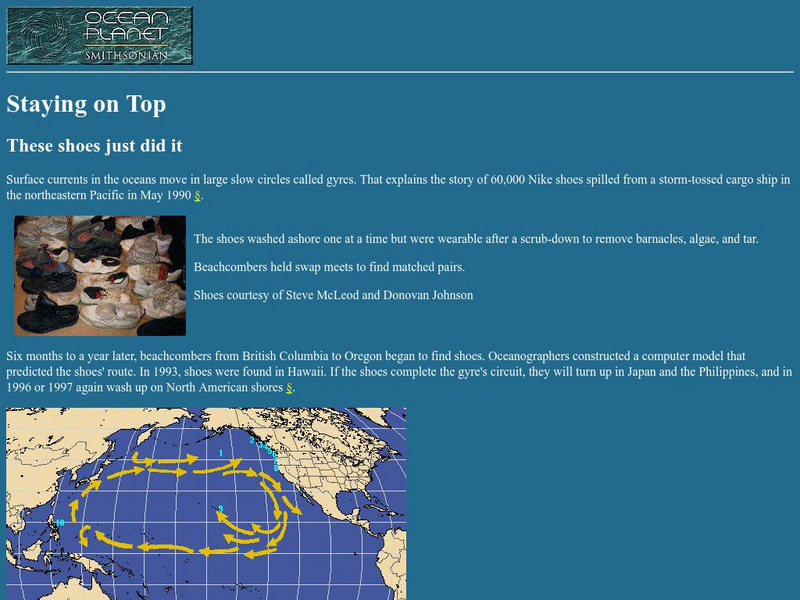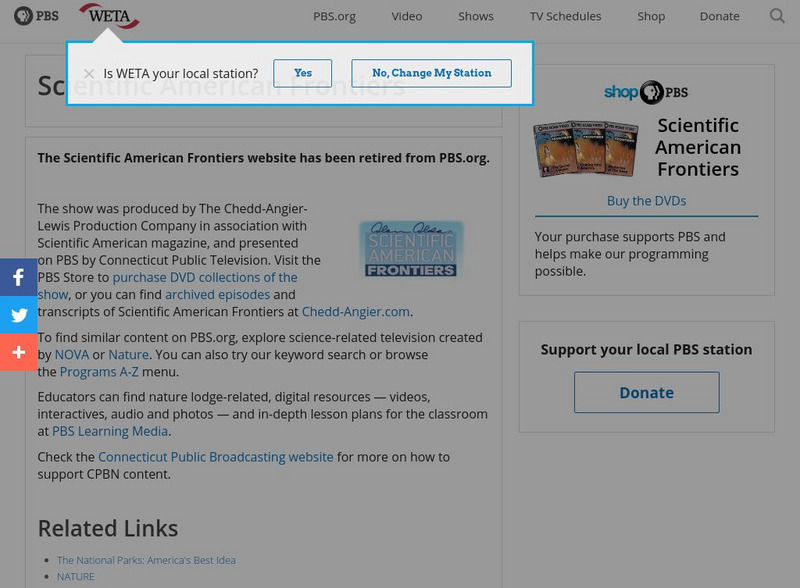PBS
Pbs, Secrets of the Ocean Realm: Mountain in the Sea
This experiment allows your students to study the effect of temperature on water motion and also to create their own density driven current.
PBS
Nova Online: Troubled Hearts
This site contains pictures of hearts that have some type of problem such as narrowing of the arteries and muscle damage from a heart attack. There is also a terrific picture of the coronary artery system that supplies the heart.
Climate Literacy
Clean: Tropical Atlantic Aerosols
Students will use real satellite data to determine where the greatest concentrations of aerosols are located during the course of a year in the tropical Atlantic region and their source of origin.
McGraw Hill
Glencoe Biology: Circulatory System: Self Check Quiz
Five multiple-choice quiz questions covering the human circulatory system. Students have the opportunity to check their answers after submitting their results.
Other
Beloit College: K 12 Geology
This is a good source of basic information about density currents in water. It includes simple activities you can do to demonstrate these currents.
Museum of Science
Museum of Science and Industry: Online Science: Activities: What Goes Around
An activity where students take on the roles of parts of the circulatory system, and simulate the transport of nutrients, oxygen, and carbon dioxide through the blood stream.
Scholastic
Scholastic: Study Jams! Science: The Human Body: Circulatory System
An animated video, with an accompanying quiz, explains how the circulatory system works.
Other
Lunar and Planetary Institute: Oceans From Space
This collection of photographs from space-shuttle missions shows some features of oceanic circulation that simply cannot be seen from any other vantage point. This site is a great resource for many different topics of study.
Untamed Science
Untamed Science: Biology: Human Biology: Circulatory System
Read and watch how the blood, the heart, and the blood vessels keep the blood flowing through our bodies. [6:00]
Famous Scientists
Famous Scientists: William Harvey
Find out how William Harvey was the first known to describe completely the systemic circulation and properties of blood being pumped to the brain and body by the heart.
Curated OER
Kids Health: Cpr
At this website find answers to the following questions: "What Is CPR?" and "When is CPR Needed?" Learn the three basic parts of CPR (airway, breathing, and circulation), and learn about opportunities to take CPR courses.
Curated OER
Kids Health: Heart and Circulatory System
The circulatory system and how it functions are explained. An interactive diagram shows how blood flows through the heart. Disorders of the heart and the circulatory system are also described.
American Academy of Family Physicians
Family doctor.org: Peripheral Arterial Disease and Claudication
This article provides information about peripheral arterial disease and claudication (poor circulation) and related health problems it.
CK-12 Foundation
Ck 12: Life Science: Cardiovascular System
[Free Registration/Login may be required to access all resource tools.] Your cardiovascular system has many jobs. At times the cardiovascular system can work like a pump, a heating system, or even a postal carrier. To do these tasks,...
CK-12 Foundation
Ck 12: Life Science: Blood Vessels
[Free Registration/Login may be required to access all resource tools.] The blood vessels are an important part of the cardiovascular system. They connect the heart to every cell in the body. Arteries carry blood away from the heart,...
CK-12 Foundation
Ck 12: Life Science: Circulation and the Lymphatic System
[Free Registration/Login may be required to access all resource tools.] The lymphatic system is a network of vessels and tissues that carry a clear fluid called lymph. The lymphatic system works with the cardiovascular system to return...
Smithsonian Institution
National Museum of Natural History: Ocean Planet: Staying on Top
This is the story of the infamous Nike shoes that washed off a cargo ship. The shoes later showed up along beaches, giving oceanographers another clue as to how ocean currents move.
BBC
Bbc: Gcse Bitesize: The Challenges of Size in Animals
This lesson focuses on blood including it's functions including transporting materials around the body and protecting against disease. It explains the components of blood and the functions of each and offers a link to an assessment.
North Central Regional Educational Laboratory
Ncrel: Human Body Systems Resource
What do you know about the different human body systems? This site features information on each of the different systems. Students and teachers will benefit from this comprehensive resource.
University of Illinois
University of Illinois Urbana Champaign: The Heart of the Matter
A good quick look at the comparative anatomy of the heart of a typical bird and the human heart. Gives some of the facts behind the differences.
Science Museum of Minnesota
Habits of the Heart: Lessons: Blood Circulation
Teacher directed instructional activity where students dramatize the flow of blood through the heart.
Other
See How It Flies: Airfoils and Airflow
One chapter from a larger site dedicated to explaining the physics of flight. Numerous diagrams show the flow of air around an airfoil.
PBS
Pbs Teachers: Scientific American: The New Zoos: Doctor Fish
Investigate the evolution of the heart and circulatory system in mammals by studying the anatomy of hearts in other animals. Create models of the hearts of fish, amphibians and mammals.
Diffen
Diffen: Arteries vs. Veins
Find out about the basics of arteries and veins with this comparison chart. Then read the article, study the diagrams, and watch the video to learn more about blood vessels.


